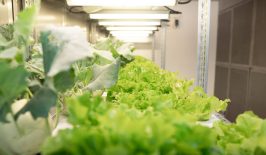„It’s only three days left until Cop15 ends – and the closer we get to this end, the more I feel that this becomes an exclusive process. Although I must admit that I don’t really know what all those thousands of civil society represantatives do here all day long (some admittetly seem to be in consultations with their coffee all the time), restricting the participation of civil society at the UN Copenhagen Climate Summit is neither a good sign for the ongoing negotiations. After waiting a mere 40 minutes in the queue outside this morning (rather than those 7 hours that some people waited yesterday), I got into the Bella Center today, due to the “Secondary Badge” that I own. But as I have heard tonight, there were another couple of thousands NGO-represantatives that wanted to get in – and did not get in after eight (!!) hours of waiting in the cold.
“This is a huge priviledge”, our coordinator Josh told us – only 30% of those accredited with any NGO got in today, but almost all the trackers. It certainly means a lot to us. However, it is not really less disappointing on the inside of this building, where we often need a third badge to actually access the meetings (the usually open Plenarys that is), but still cannot access the closed and informal meetings.
This process is getting more and more intransparent. Not only because of closing down the meetings, but due to the whole dynamics that are unfolding during these days. Apparently, it’s even intransparent to those that are really participating: This morning, I met Ilka Wagner on the hallway, the German Delegate responsible for the issue of “technology transfer”. We are trying to meet since last week, but haven’t managed so far. She was – once more – running from one room to the other.. no chance to get hold of her. This time, she told me, what had happened: They were re-starting to negotiate serveral texts in parallel. “I don’t know how this can actually work”, she said, looking frustrated and tired.
People around the world have demanded that heads of state take personal responsibility for averting catastrophic climate change. They have demanded that leaders agree on a legally binding treaty that is both fair and ambitious. Many of them might not actually know what this is about. They might not have any idea about the dynamics of this process and the problems that are bound to it. But what strikes me most is that even those that should have an idea at this stage of the negotiations, seem to have no clue where this is heading to.
This afternoon, the European Youth had a meeting with a couple of European Environmental ministers, among them those from Belgium, the Netherlands, Ireland and Finland. All of them were asked once more, when exactly they were planning to raise their emission reduction targets to 30% within the EU and, more importantly, whether they thought they would live up to their promise to do the best for upcoming generations.
It was disappointing. They were nice and cooperating, but none of them – as expected – said anything surprising. Of course, the EU wants to move to the 30% target, but it remains conditional. Conditional. Conditional with only three days of negotiations ahead. How is this supposed to work out, I ask? How are we supposed to trust our leaders in an environment, where we are locked out and all we here from them from day to day is a reiteration of their well-known statements? Lock-out on one side, a Dead-Lock on the other?
Later this afternoon, the high-level segment (the meeting of ministers and later heads of states this week) was welcomed by a group of young, blonde, Danish singers. It was once more a pretty ceremony. Even Prince Charles was there, speaking much longer than he was supposed to…all this ceremonial stuff fit quite well in the overall “marketing strategy” of this COP – and even Nicole Wilke (in our interview here) told me: This looks like an exhibition or a fair, but not like a conference where Heads of States discuss the future of our very survival. Frankly: Has any pretty ceremony ever changed politics? Will anything change within the next three days? Look at the “Hopenhagen”-Greenwashing-PR-Deals that came out of COP15 so far… Coca Cola is trying to present itself as the world’s saviour…. with a bottle of hope, everything will be okay. I don’t think so!
Later that night, there was a side event with Norbert Röttgen (Germanys environmental minister), RWE, Eon and the BDI President… interestingly, they discussed the use of CCS and nuclear energy as if it was the most normal ideas you could think of. Indeed, I found myself in this identity-crisis once more, when I realised: Being part of the NGO community that is full of “happy and optimistic” people sometimes dillutes my view of actual realities. Röttgen might have some good intentions. But those guys up their on the panel have (each one of them) more power in our country than Röttgen will ever have. They have market power and money. Röttgen is still fighting our own Development Minister about issues like additionality…and he repeatedly tries to excuse by saying he’s been to this post for only a mere 6 weeks.
I regret to be a pessimist at this point. I have never been a good and credible pessimist. But at this point, I want to sleep and pray I won’t have another nightmare. What’s happening here, right now, is nightmarish enough.“
In Kopenhagen beraten die Vereinten Nationen derzeit über ein globales Klimaschutzabkommen. Im Rahmen der Aktion Adopt a negotiator bloggt Ole Seidenberg live von den Verhandlungen. Alle Beiträge von Ole kannst du hier lesen. Du willst dich für ein faires Klimaschutzabkommen stark machen? Bei TckTckTck.org findest du viele Möglichkeiten, wie du dich jetzt engagieren kannst. RESET ist offizieller Partner von TckTckTck.








